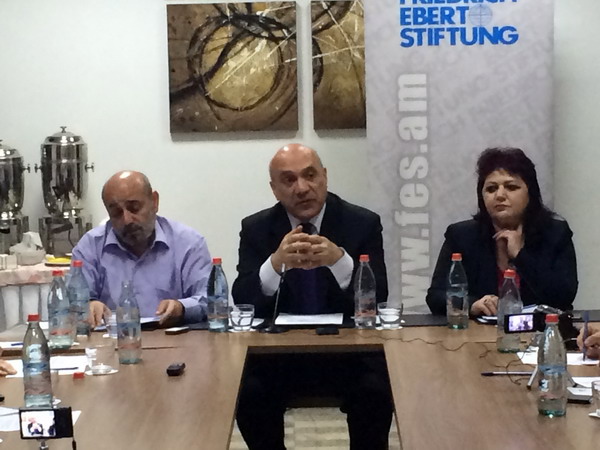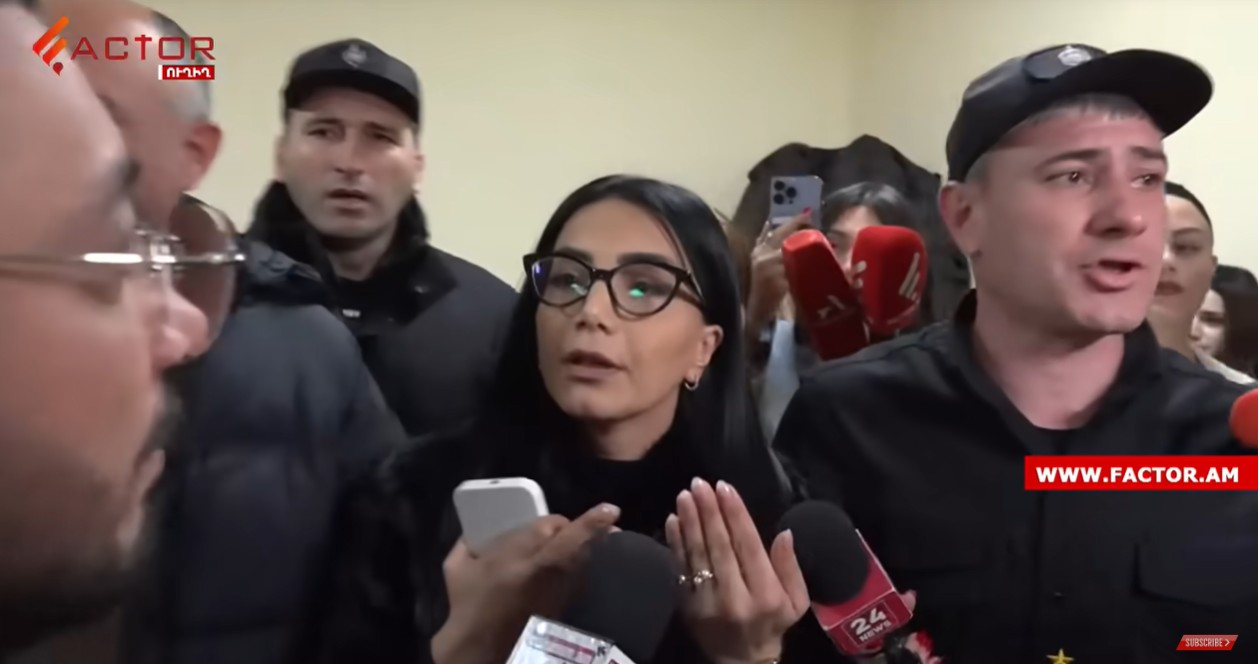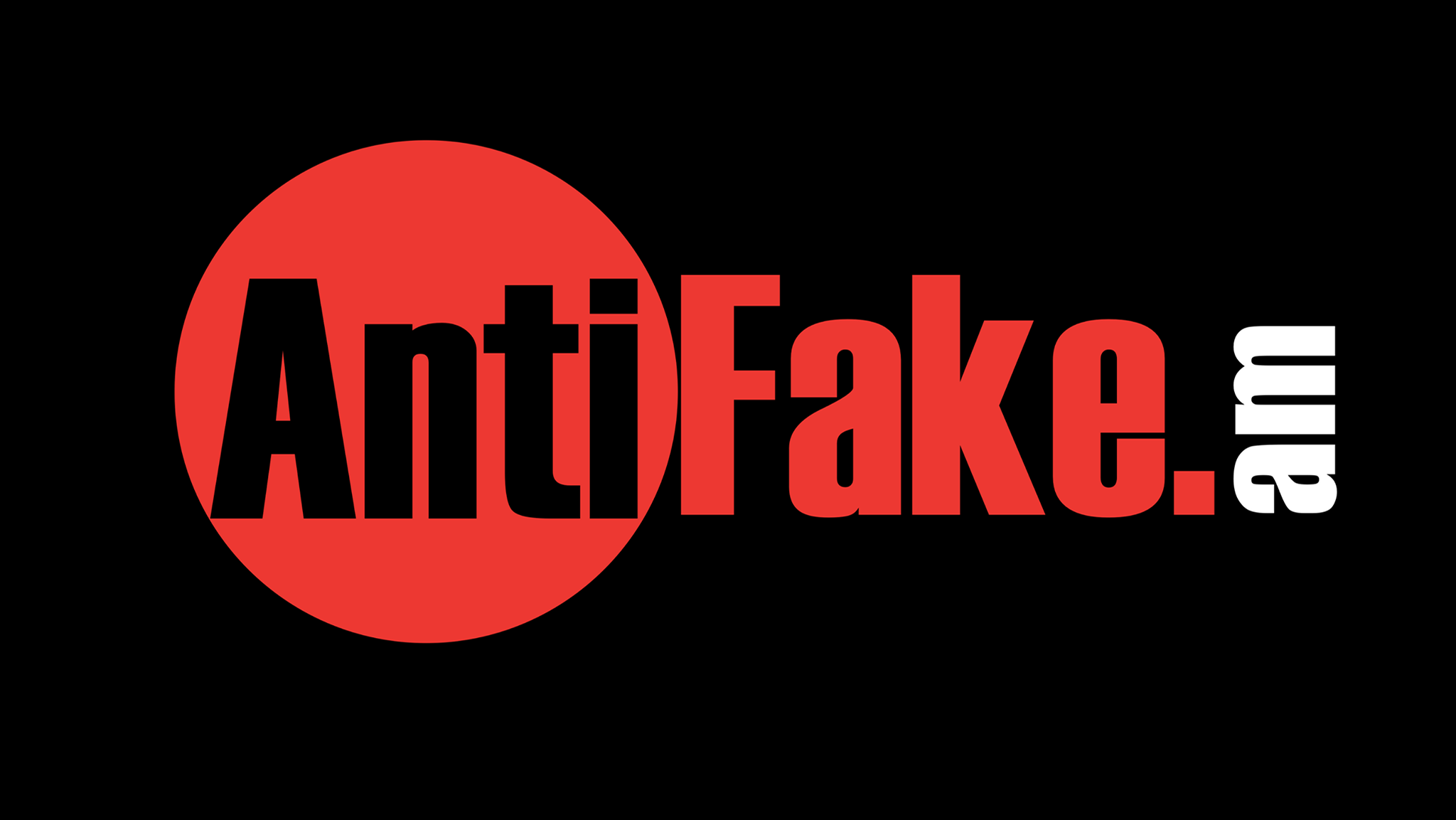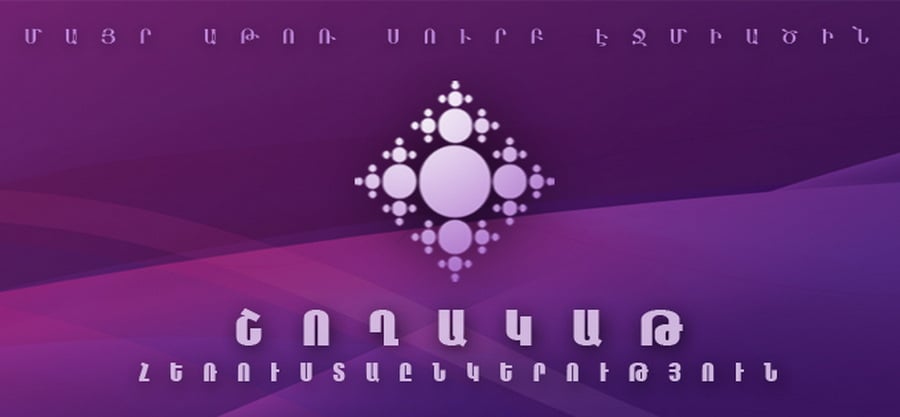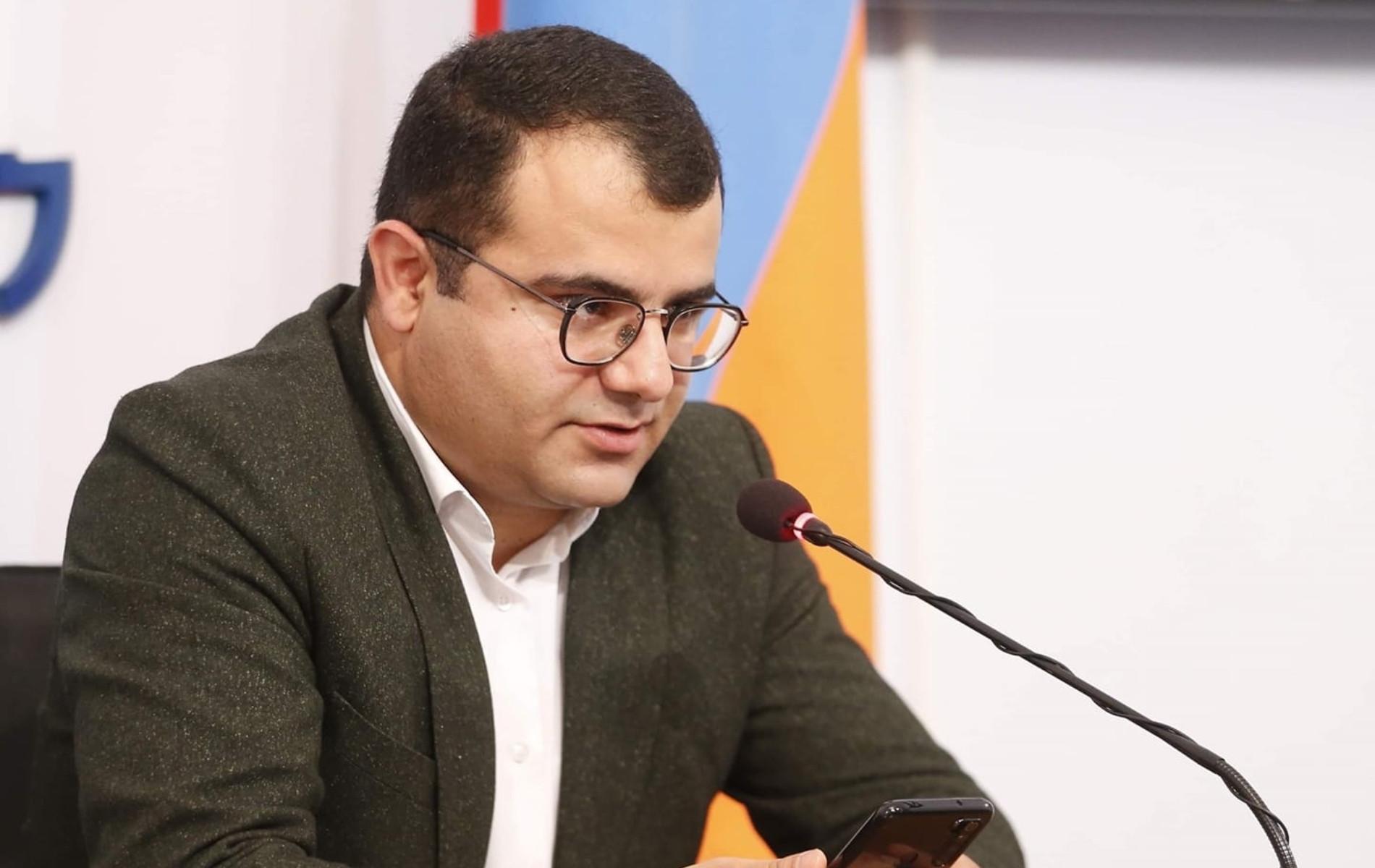 Committee to Protect Freedom of Expression, with the assistance of Friedrich Ebert Foundation, organized a round table meeting on the topic “Media Self-Regulation: Developments in Armenia and International Practice” on May 26 at the Congress Hotel Yerevan. Attending were journalists, media experts and human rights activists.
Committee to Protect Freedom of Expression, with the assistance of Friedrich Ebert Foundation, organized a round table meeting on the topic “Media Self-Regulation: Developments in Armenia and International Practice” on May 26 at the Congress Hotel Yerevan. Attending were journalists, media experts and human rights activists.
In his opening remarks, the chair of CPFE Ashot Melikyan noted that the process of media self-regulation in Armenia started back in 2007. “In the beginning the heads of 18, afterwards another 30 media signed the Code of Conduct of Media Representatives, and an observatory has been elected and is operating to address violations of the Code of Conduct.” Ashot Melikyan referred to the Media Ethics Observatory as a necessity for the media sphere, at the same time stressing that, unfortunately, he does not observe much progress so far.
The media expert and member of the Media Ethics Observatory Mesrop Harutyunyan said those media which have joined the self-regulation initiative held a general meeting on 16 May 2015 during which the Code of Conduct was amended, as well as the list of media which have signed it was updated. “As of now, 39 media have signed the code of ethical rules. Eight journalism organizations also support this process,” Mesrop Harutyunyan informed.
The Media Ethics Observatory in Armenia has 14 members. It reviews received complaints. The complaints against the media which have not signed the Code of Conduct are not reviewed. “If a complaint is received against a media outlet which has not signed the Code, we send a letter to its head and recommend resolving the issue in an extrajudicial procedure,” Mesrop Harutyunyan said. The media expert underlined that the Observatory has decided to enhance its activities and, from time to time, proactively point to publications which contradict the Code of Conduct.
Whether the new system is effective or not, Mesrop Harutyunyan found it difficult to answer definitely but he noted that addressing complaints against the media in this way helps them avoid litigations.
Since 2007 the body has reviewed 35 cases. There were cases when the media had violated the Code of Conduct, and conclusions were adopted on them.
In answer to the question whether the conclusions of the Observatory have influenced further activities of the media, the media expert said that complaints against those media did not recur.
During the discussion the lawyer of Freedom of Information Center Gevorg Hayrapetyan said that media self-regulation is in the interests of both the public and the media. “The audience will take the media involved in this process more seriously because they will know what can be expected from them.”
The participants of the round-table meeting discussed the opportunities for the elaboration of the media self-regulation system, involvement of new participants and other relating issues.

